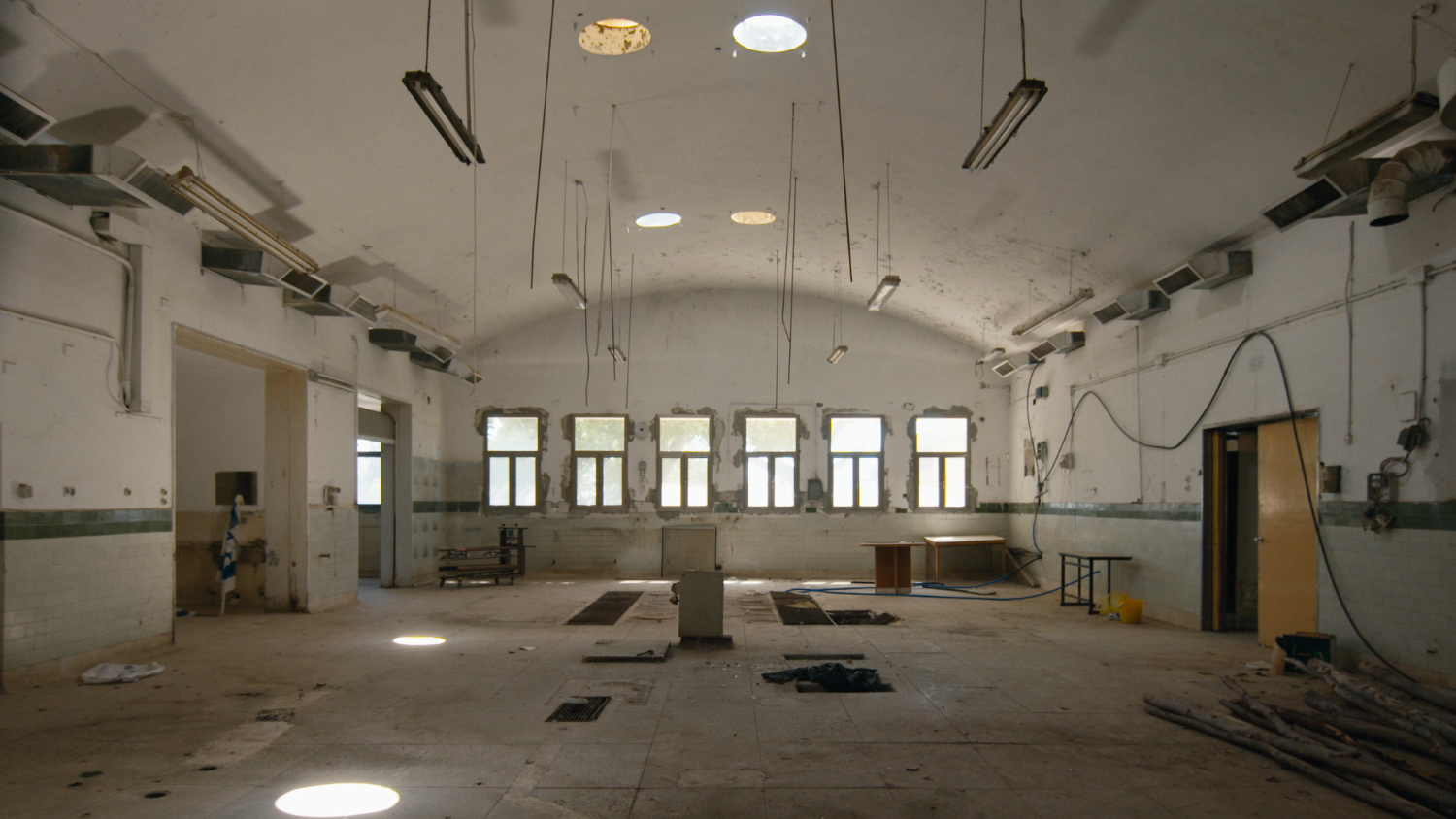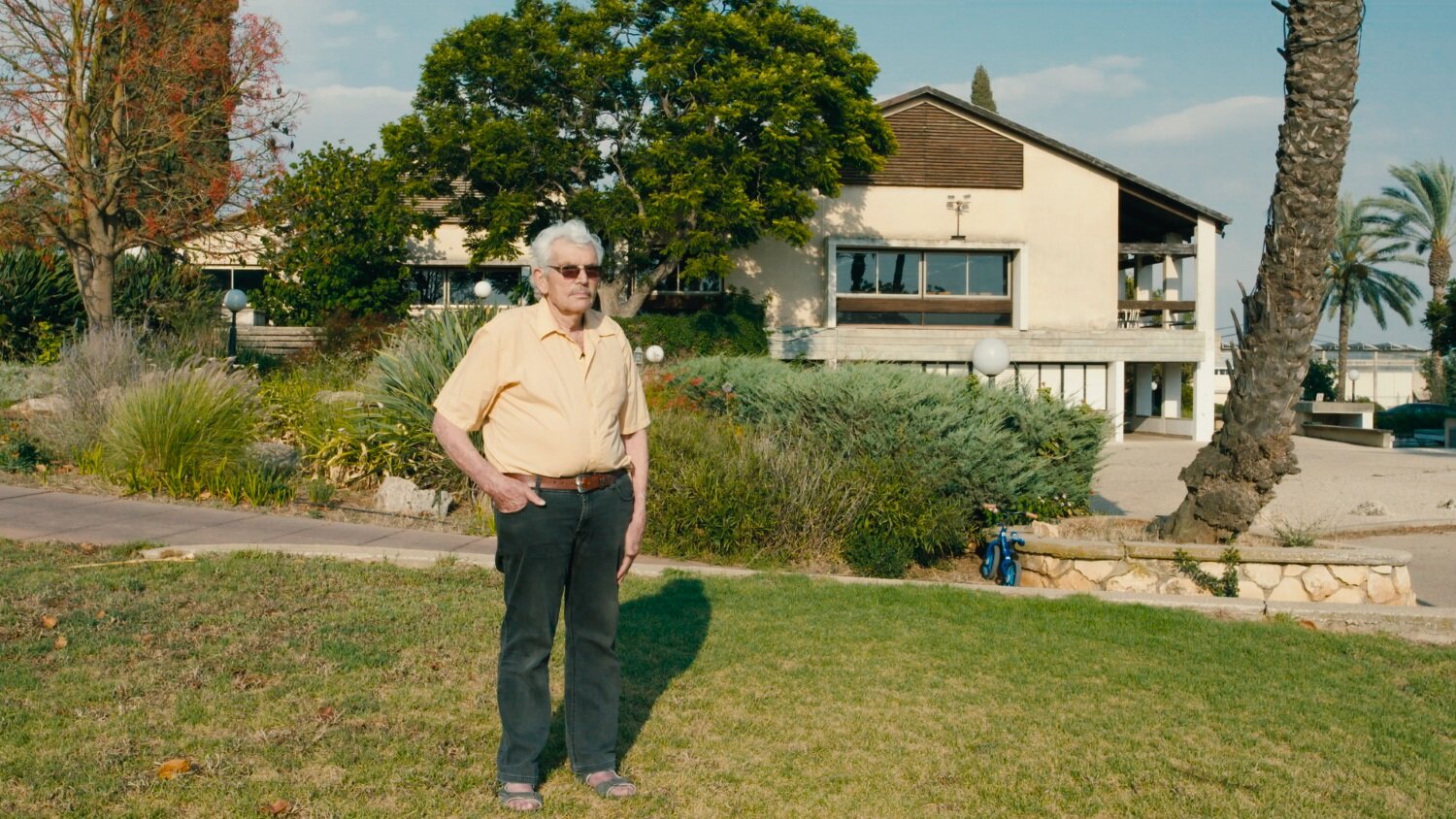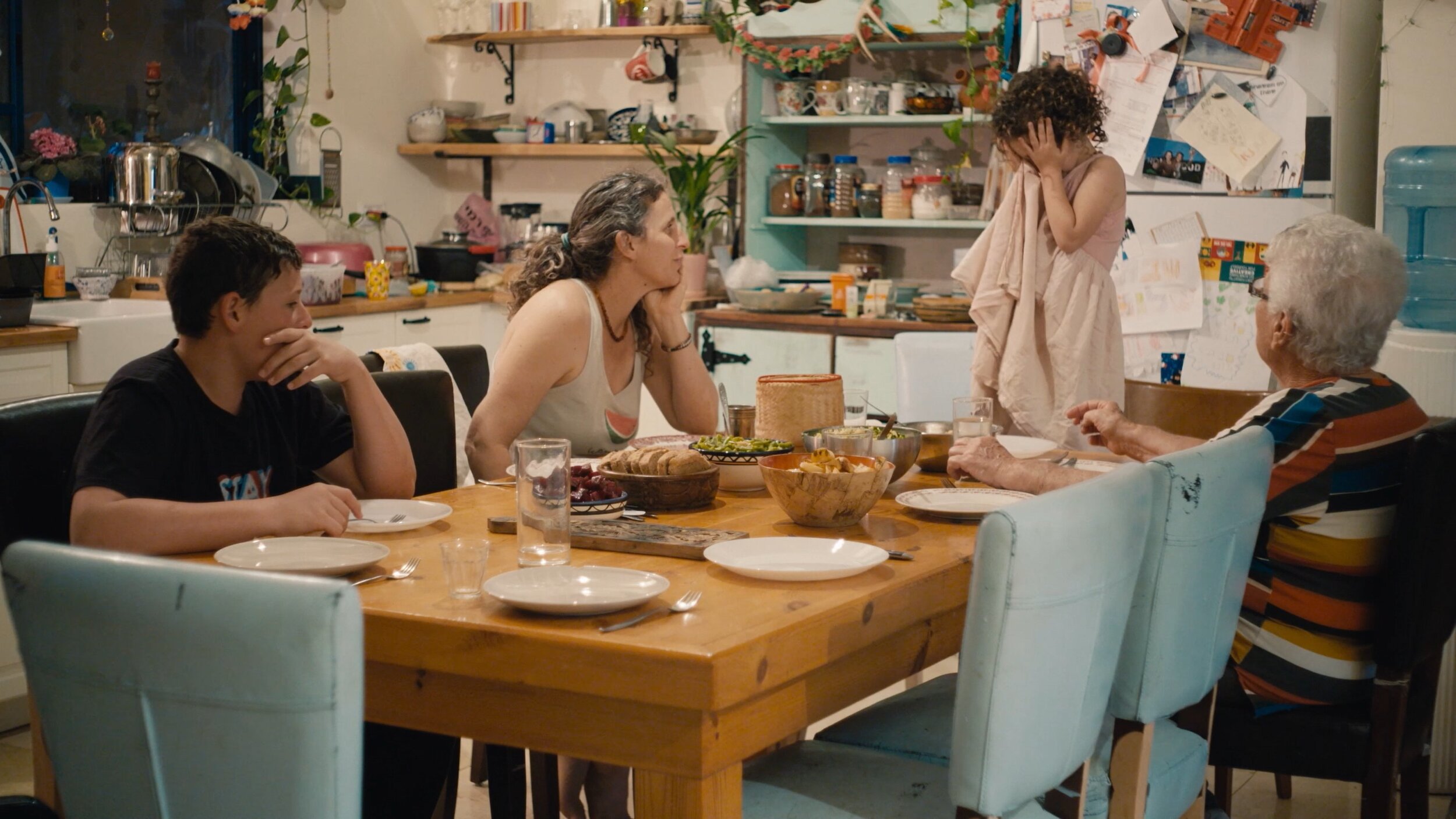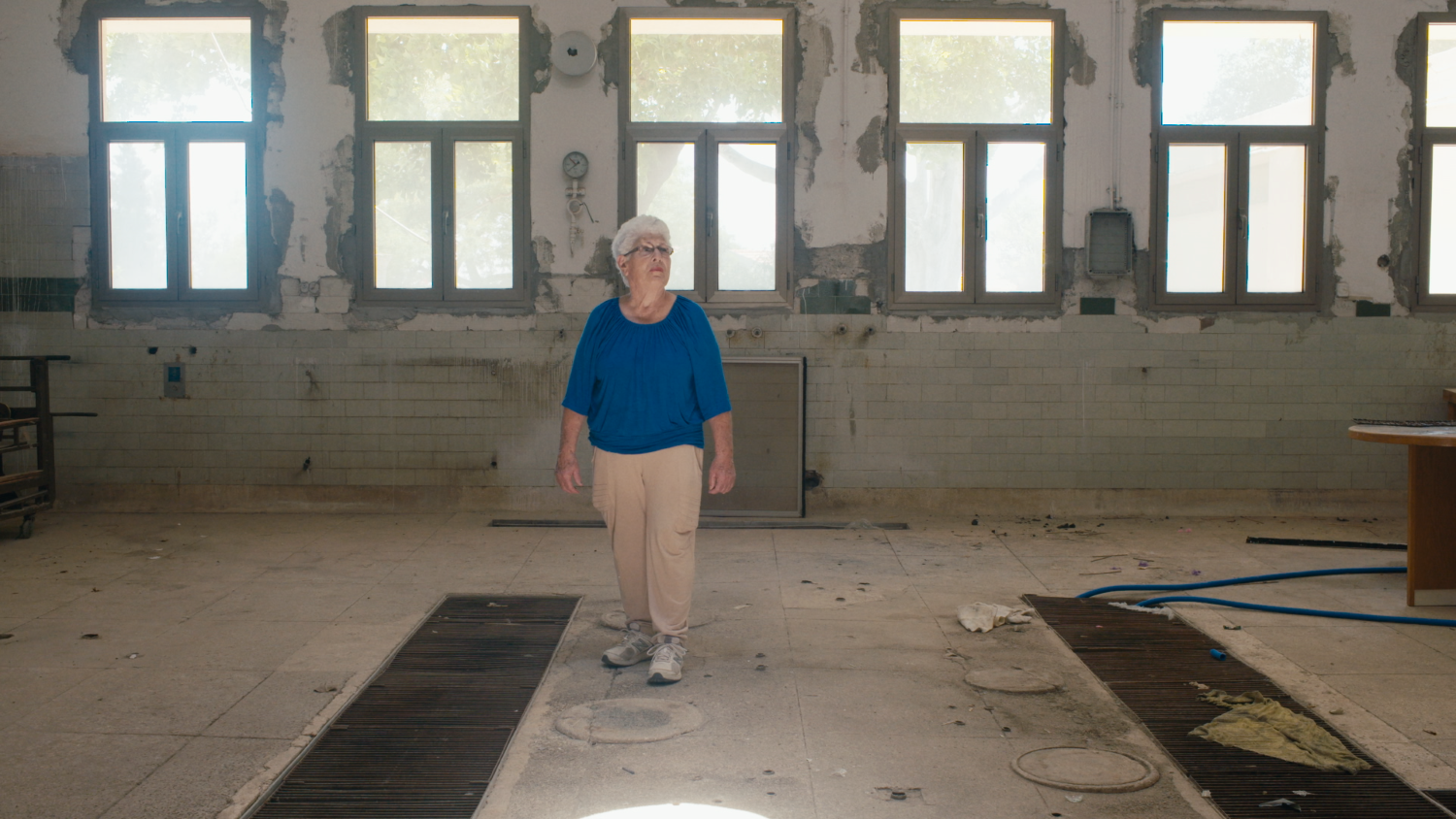Cold Buffet
Kaltes Buffet בופה קר (ISR 2019)
Short documentary / Dokumentarischer Kurzfilm (26:12 min)
A film about the development of a utopian society and current situation of two Kibbutzim in different stages of privatization, with a new view on the Bauhaus movement in Israel.
Ein Film über die Entwicklung einer utopischen Gesellschaft und die aktuelle Situation zweier Kibbuzim in unterschiedlichen Phasen der Privatisierung, mit einem ungewöhnlichen Blick auf die Bauhaus-Bewegung in Israel.
SCREENINGS
2021
OpenEyes Filmfest Marburg, Germany
Arquiteturas Film Festival Lisboa, Portugal
2020
Architektur Filmtage Zürich, CH
MalatestaShort Film Festival, Italy
Won Together Film Festival, Russia
London Festival of Architecture, England
Docfeed Documentary Festival Eindhoven, Netherlands
2019
TISFF - Tel Aviv International Student Film Festival, Israel
Ruhama and Geva are two Kibbutzim in Israel located in very different parts of the country, with values and lifestyles that were once based on the same ideas of a classless society, collective education and shared property. But they also share an architectural characteristic: Both of their dining halls were designed by architects, who were former students of the Bauhaus in Germany. Not only did the Bauhaus alumni bring a new way of building, they also shared a lot of the values that were lived in the settlements. So they focused a lot of their work on designing those, specifically the most important part of it, the dining hall: The social and cultural center and the heart of a Kibbutz and its values. But the dining rooms of Ruhama and Geva have changed, and so has life in the Kibbutzim.
Based on the stories of residents of both settlements, the film is portraying the change of structural need in the socio-political transition. Many of the buildings are empty or don’t exist anymore. It seems that architecture becomes less important, when the underlying utopia is fading. Did the concept Kibbutz - and with it the Bauhaus itself - fail?
Ruhama und Geva sind zwei Kibbuzim in sehr unterschiedlichen Teilen Israels, in denen man nach derselben Ideologie einer klassenlosen Gesellschaft, kollektiver Erziehung und gemeinsamen Eigentum lebte. Sie haben aber auch eine architektonische Eigenschaft gemein: Ihre beiden Speisesäle wurden von Architekten gestaltet, die früher am Bauhaus studierten, Shmuel Mestechkin und Arieh Sharon. Sie legten bei der Gebäudeplanung ihren Schwerpunkt auf den wichtigsten Teil eines jeden Kibbuz, den Speisesaal: Soziales und kulturelles Zentrum und symbolisches Herz des Kibbuz und seinen Wertvorstellungen. Doch die Speisesäle von Ruhama und Geva haben sich mit den Jahren verändert, und mit ihnen auch das Leben in den Siedlungen.
Anhand der Geschichten der Bewohner beider Kibbuzim, erzählt der Film die Veränderung von wohnbaulichen Bedürfnissen im Wandel der gesellschaftspolitischen Strukturen. Viele Gebäude stehen leer oder existieren nicht mehr. Es scheint, dass Architektur an Bedeutung verliert, wenn die ihr zugrunde liegende Utopie verblasst. Ist das Konzept Kibbuz - und an dieser Stelle auch das Bauhaus - gescheitert?
Director and Editor: Kate Ledina
Producer: Uri Yerushalmi, Nicola Hens
Cinematography: Christoph Hertel
Sound recording & design: Kevin Jahnel
Supported by a grant from the Stiftung Deutsch-Israelisches Zukunftsforum | קרן פורום העתיד גרמניה- ישראל, Kreativfonds der Bauhaus-Universität Weimar & Merkur Bank.




